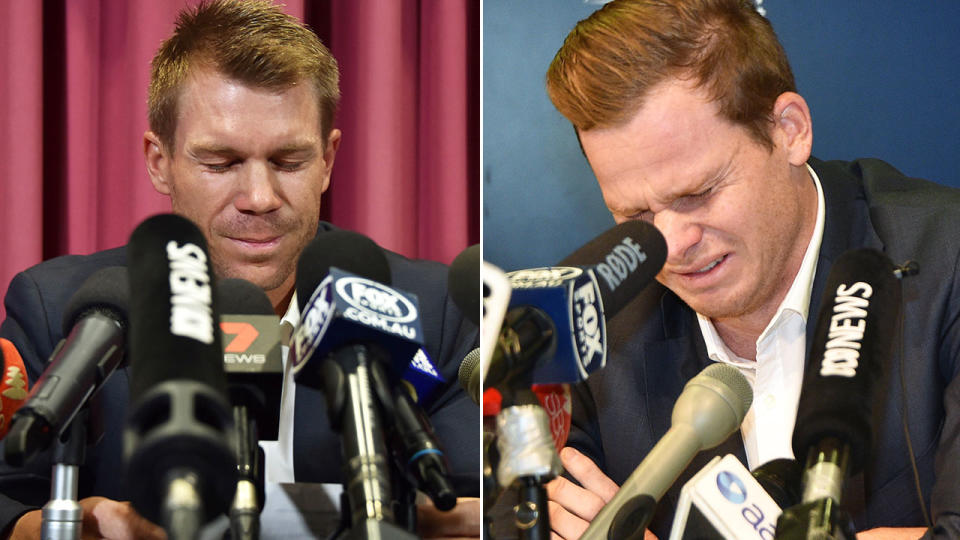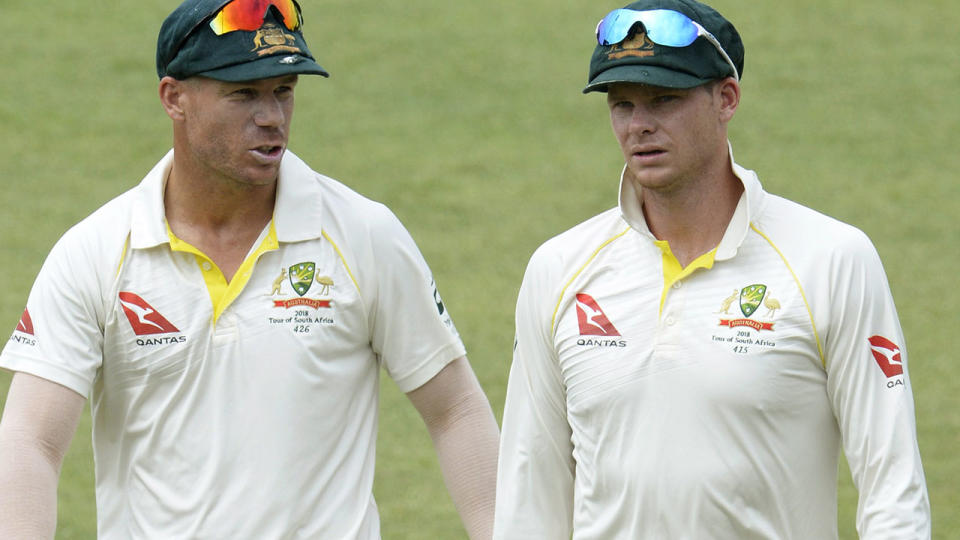Did fellow players cost Warner and Smith reduction of bans?
A leading cricket writer has revealed how a poor response from their fellow players may have cost David Warner and Steve Smith an early return from their ball-tampering bans.
Monday’s scathing report into the culture of Cricket Australia, commissioned after the ball-tampering furore, highlighted CA’s “arrogant” ways and noted “responsibility for that larger picture lies with CA and not just the players held directly responsible for the appalling incident at Newlands”.
It has led to renewed debate about whether the length and/or terms of Smith, Warner and Cameron Bancroft’s suspensions should be adjusted.
However according to Robert Craddock, there was an underwhelming response from current and former players to surveys issued by The Ethics Centre conducting the review.
Current Aussie players reportedly made up just 14 of the 469 total surveys returned to The Ethics Centre, which made up the basis for their recommendations.

Only 14 of 48 current players completed the survey, and only three of nine former players submitted their surveys.
The lack of responses may have been a form of protest from players that administrators were meddling in Aussie cricket.
But according to Craddock, that move backfired.
The veteran cricket writer says an overwhelming response from players to reduce the bans handed to Warner, Smith and Bancroft could have forced the hand of administrators.
But the silence was deafening.
“They did a hell of a lot of interviews, but significantly the player response was down,” Craddock told Fox Sports News.

“Only 14 of the 42 players who were sent a survey filled it in. That didn’t help Smith and Warner in their bans.
“The response from the players who did respond was that the bans were appropriate, generally.
“Had there been a landslide of protest about their bans it could have really helped those two.”
Players’ union clash with Cricket Australia
Australian Cricketers’ Association (ACA) president Greg Dyer, perhaps the most vocal and consistent critic of the bans, said in a statement that “independently verified contributing factors must now be taken into consideration and the penalties reduced”.
CA chairman David Peever had already rejected that notion, noting “the sanctions were imposed by the board after a very full and thoughtful process and so the sanctions stand, as I said several weeks ago.”
Dyer, who remarked earlier this year that “justice which is rushed can sometimes be flawed”, and ACA chief executive Alistair Nicholson are expected to make a case for the bans to be softened during a press conference on Tuesday.
The review’s most urgent recommendation was for CA and the ACA to establish a constructive working relationship within 30 days.
Last year’s bitter pay talks have left a series of scars, according to The Ethics Centre report.
“Negotiations between cricket’s stakeholders were described by many as being ‘aggressive’,” the report said.
“A frequently cited example was that of the most recent negotiations between CA and ACA.
“People variously described the actions of both parties as being arrogant and aggressive, contributing to a toxic management and playing environment in which money is valued above fair play, and aggression wins the day.
Australia captain Tim Paine suggested CA chief executive Kevin Roberts and Nicholson had been working “‘really hard” on mending bridges for the betterment of the game.
“There’s no doubt there was a period during the pay dispute, where things got a little bit uglier than what they should have,” Paine said.
“But both sides have admitted to some fault there and both sides are committed to moving on and having a better relationship.”
with AAP
